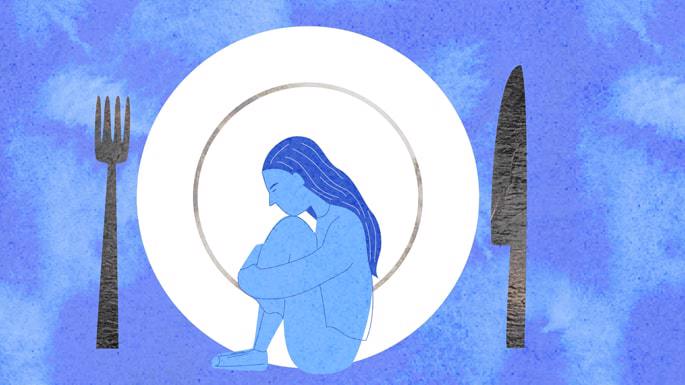|
Getting your Trinity Audio player ready...
|
The ninth day of the Jewish month of Av (known as Tisha B’Av) is a day of fasting and introspection, when we commemorate the destruction of both the First and Second Holy Temples in Jerusalem, as well as other tragedies that befell the Jewish people on this day. As with Shabbat, the fast begins before sundown on the eve of 9 Av.
It is customary to eat a seudah hamafseket, “separation meal,” late in the afternoon of the 8th of Av before the fast starts. This meal typically consists of bread and a hard-boiled egg.1 The custom is to dip the bread or egg (or both, as done in Chabad) into ashes.
Bread and Ashes
The custom of dipping and eating the bread with ashes is found in the Jerusalem Talmud,2 which recounts how the great sage Rav, after satiating himself before Tisha B’Av, would color his piece of bread with ashes and say: “This is the main meal of 9 Av.”
Rav’s intention was to actualize the verse “Indeed, He has made my teeth grind on gravel, and caused me to wallow in ashes.”3 Since we do not eat on Tisha B’Av itself, he would do this just before the fast.
Eggs and Ashes
The Code of Jewish Law tells us that it is customary to eat eggs at this meal, as eggs are typically eaten by mourners (see: Why Are Mourners Served Bagels and Eggs?). Although the Code does not tell us with what to eat the eggs, many have the custom of eating them with ash as well.
Rabbi Abraham David of Butchatch (1770–1840), in his commentary Eishel Avraham,4 explains the reason for dipping the egg into ashes as follows.
The Torah relates that when our forefather Jacob returned to the Land of Israel with his family, he encountered a mysterious man at night. When the man realized he couldn’t overpower Jacob, he struck his gid hanasheh (sciatic nerve), causing Jacob to develop a permanent limp. However, Jacob didn’t give up and continued to wrestle with the man until dawn. As morning approached, it became apparent that the man was actually an angel. After being blessed by the angel, Jacob agreed to let him go. Due to this incident, the Torah prohibits Jews from eating the sciatic nerve (see: Why Don’t We Eat the Sciatic Nerve?).
The Zohar5 explains that each one of the 365 “tendons” of a person’s body corresponds to one of the 365 days of the year. The gid hanasheh, which the angel wounded, is related to the day of Tisha B’Av. The Midrash6 explains that the word nasheh can mean “forgetfulness” or “weakness,” hence the gid hanasheh symbolizes the vulnerabilities of forgetfulness and general weakness.
This is related to Tisha B’Av, as it is a day when the Jewish people were, so to speak, weakened in our awareness of G‑d and His Torah, and a state of “forgetfulness” set in. In fact, the halachah is that we abstain from learning parts of the Torah that aren’t related to mourning and destruction of the Holy Temple.
The Talmud7 lists a number of things that are conducive to remembering Torah, including ashes and hard-boiled eggs. Thus, right before Tisha B’Av, we “preempt” the negative elements, such as forgetfulness and weakness, with the remedy of the ashes and the hard-boiled egg.
Sign of Redemption
But perhaps we can offer another explanation. As we explained in Why Are Mourners Served Bagels and Eggs? one of the reasons a mourner eats eggs is that although the egg may appear to be a fully-formed entity, it is really just a precursor for the living creature that will eventually emerge from it.8
Thus, the egg symbolizes our faith and hope for the future Redemption, when we will be reunited with our loved ones.
Interestingly, it takes 21 days to incubate an egg, the exact duration between the 17th of Tammuz—when the days of mourning begin—and the peak of mourning, the 9th of Av. Our sages explain that the apparent tragedy of the destruction of the Temple was actually a prelude to the Redemption and the building of the Third Holy Temple, which will be even greater. Therefore, we specifically eat the egg with ashes, hinting at the ultimate Redemption hidden within the destruction.
May we merit the rebuilding of the Temple and the fulfillment of the verse: “So said the L‑rd of Hosts: The fast of the fourth [month], the fast of the fifth [month] . . . shall be for the house of Judah for joy and happiness and for happy holidays .






An uplifting concept that within the destruction and devastation are the seeds and promise of the redemption.